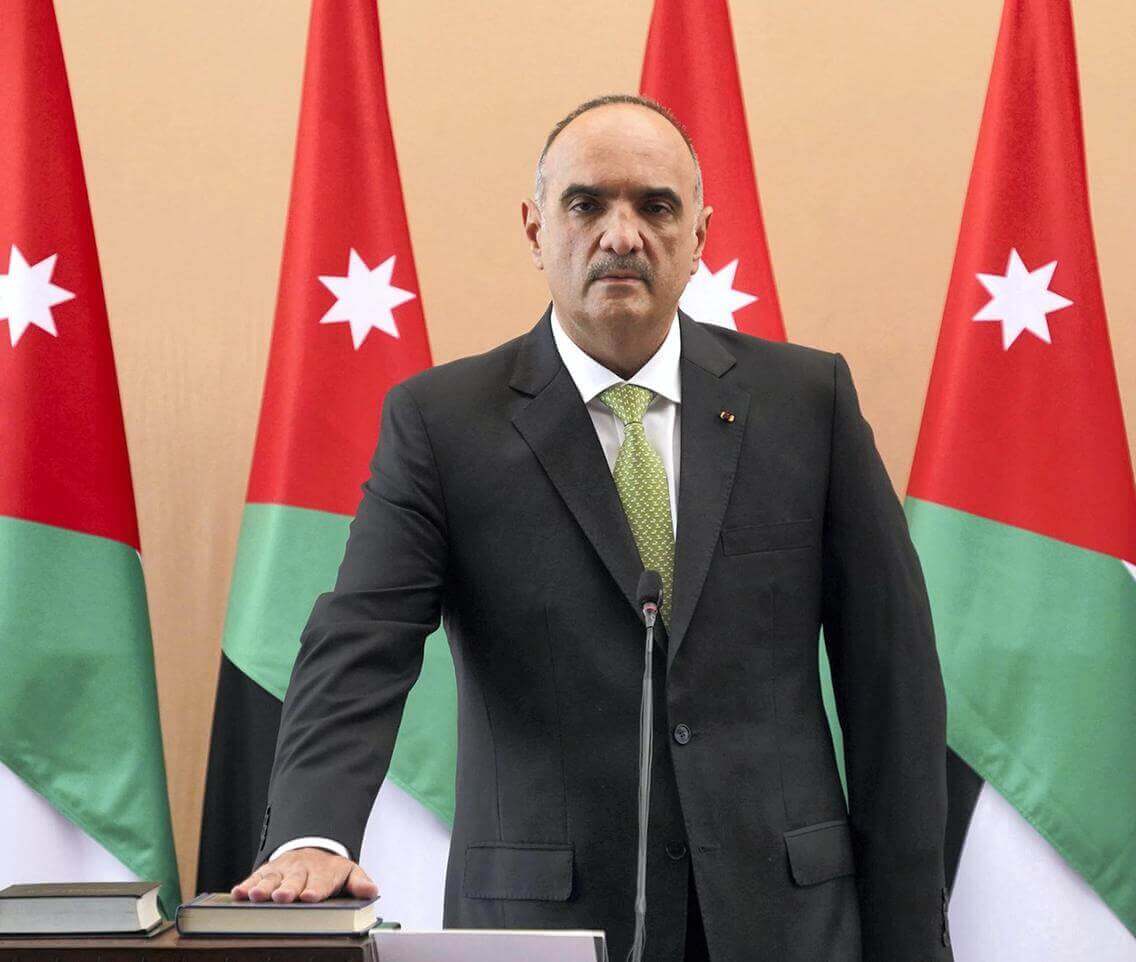On Monday, Jordan’s King Abdullah II swore in the Hashemite Kingdom’s new Prime Minister Bisher al Khasawneh and 32 Cabinet ministers. The new government, led by the veteran diplomat, is set to work towards accelerating International Monetary Fund (IMF)-backed reforms for the country as it faces its worst economic contraction in decades due to the effects of the coronavirus crisis. Khasawneh, who was appointed to the post last week after the dissolution of the previous government that was led by Omar Razzaz, will be the 13th Prime Minister to serve under Abdullah II’s reign, which has been in place since 1999.
In his designation letter, the monarch said that he trusted Khasawneh, who was educated in the United Kingdom and has been a close aide and advisor to the palace, to form a cabinet that comprised of qualified and professional ministers who would rise to the demands and challenges of the country. “The formation of this government comes at an exceptional time,” the King said, referring to the pandemic. He voiced his hopes for the new government to boost healthcare capacities and mitigate fear among citizens as COVID-19 infections rise and also address public discontent over the lack of public freedoms and economic growth under the Kingdom’s emergency laws.
Further, Khasawneh will be overseeing the country’s 10 November parliamentary elections, which will take place according to an electoral law that pushes a majority of pro-government deputies and marginalizes the country’s Islamist opposition. International human rights groups have previously lambasted Jordanian authorities for dissolving an opposition-led teachers’ activist union in July 2019 and routinely detaining dissidents and critiques of the government’s policies. The Razzaz administration, which was appointed to pacify the Kingdom’s 2018 protest against IMF tax norms, also faced criticism for using pandemic-induced emergency laws to clamp down on dissent.
The new Cabinet features fresh and familiar faces, with eight ministers returning from the last administration and holding on to their roles. While ten former ministers from preceding regimes are making a comeback as well, 13 will be first-time ministers. Among these, the two most prominent ministers from the Razzaz government—Foreign Minister Ayman Safadi and Finance Minister Mohammed Al Ississ—are expected to drive the country through its crisis, along with Khasawneh who was known for his role in mediating Jordan’s ties with Israel.
Ississ, having negotiated a $1.3 billion deal with the body for the next four years, has won praise from the IMF for his handling of the country’s pandemic-struck economy. The IMF deal is expected to enable Amman access cheaper financing of more than $3 billion by way of concessionary grants and loans from Western donors that would help soften the blow of the coronavirus on the economy. Using these tools, Khasawneh has vowed to recover the massive public debt of $45 billion owed to the Jordanian government and public, stating that next year’s budget will focus on maintaining fiscal prudence.
However, Salma Nims, Secretary-General of the Jordanian National Commission for Women, said that the new government did not meet the people’s expectations. Responding to the fact that 9% of the Cabinet is represented by only three women, she told Arab News, “It is not only that the number of women is less, but some of the ministers who were known to attack women are now being promoted to the Cabinet level.” The ministers in question were not named.
Jordan Swears In New Pro-Reform Government and Prime Minister
The new 32-member Cabinet, led by PM Bisher al-Kasawneh, will be responsible for driving the Kingdom out of its terrible economic crisis.
October 13, 2020

Prime Minister Bisher al-Khasawneh at his swearing-in ceremony in Amman. SOURCE: JORDANIAN ROYAL PALACE
